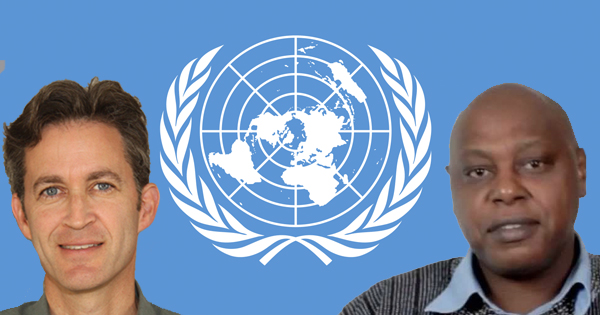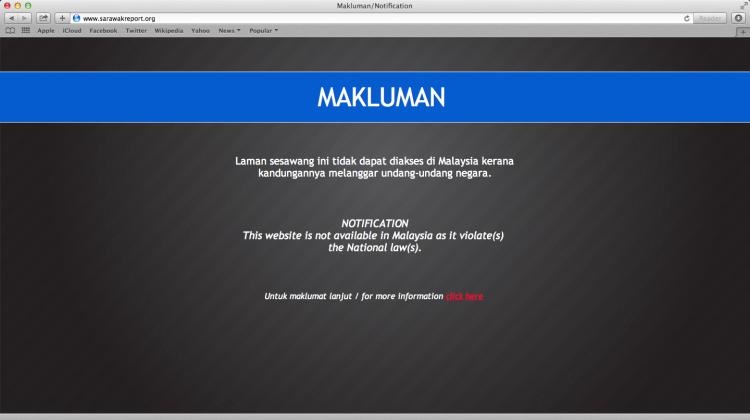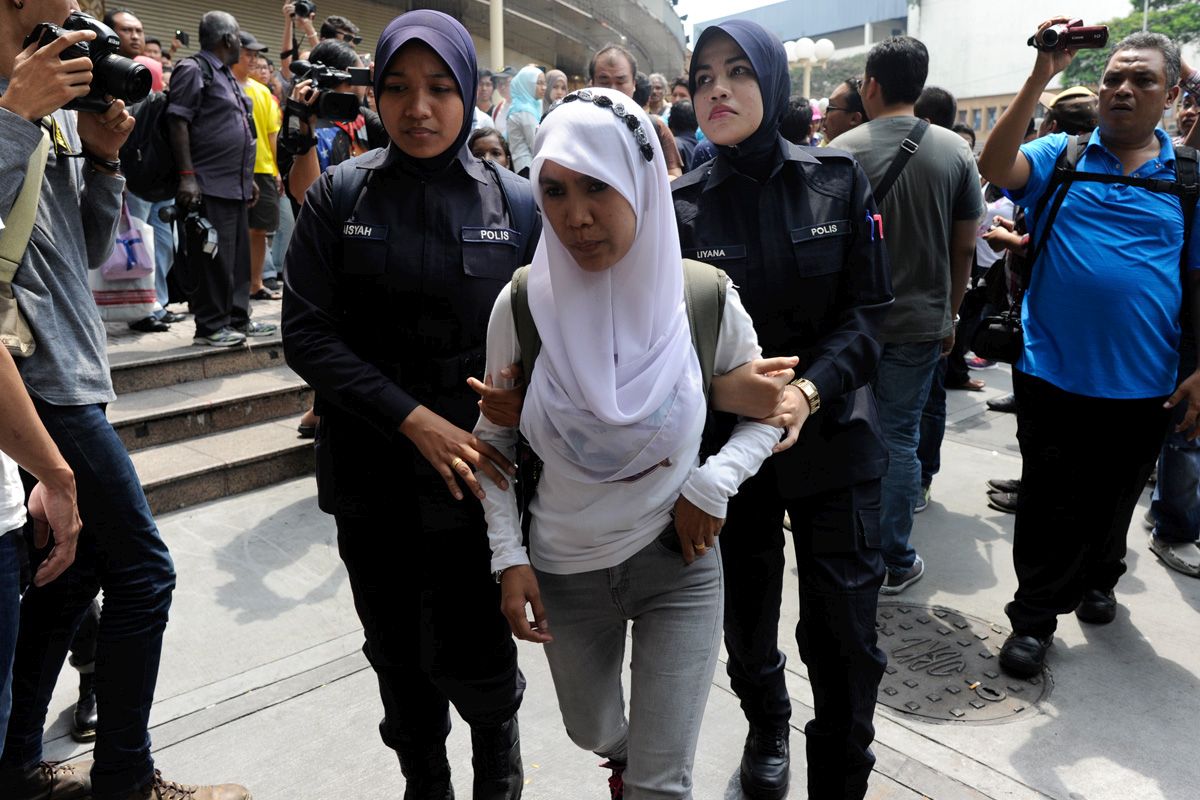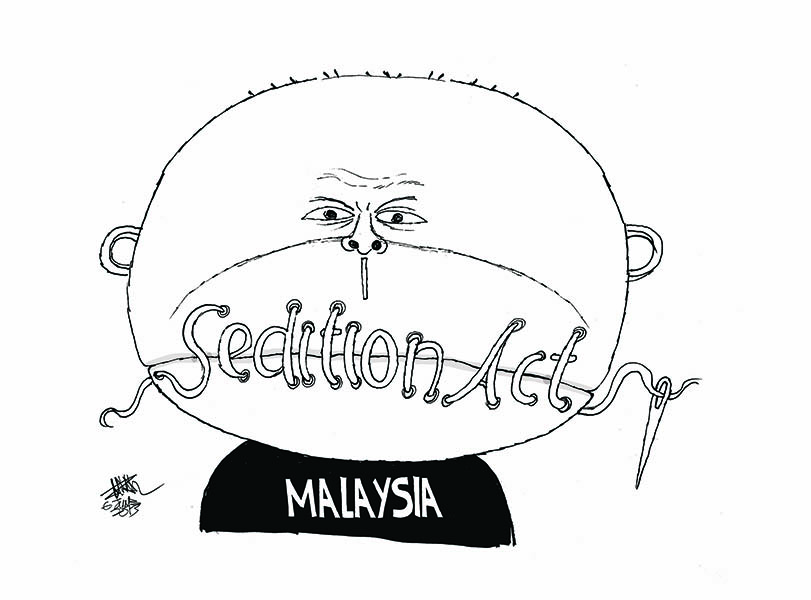All You Need To Know About UN's Letter To The Malaysian Government About Freedom Of Speech
The Malaysian government has yet to respond to the United Nations' queries.
A United Nations (UN) Human Rights Council report that was recently made public has revealed the high-level concerns over the blocking and harassment of the media by the Malaysian government.
Here are some things that you should know:
1. The report included a letter that was written by UN Special Rapporteurs of Freedom of Expression, David Kaye and Freedom of Peaceful Assembly and Association, Maina Kiai
UN Special Rapporteurs of Freedom of Expression, David Kaye (left) and Freedom of Peaceful Assembly and Association, Maina Kiai.
Image via SAYSA Special Rapporteur is an independent expert appointed by the Human Rights Council to examine and report back on a country situation or a specific human rights theme.
As Special Rapporteurs, David Kaye and Maina Kiai are responsible for issues relating to the freedom of opinion and expression, and the freedom of peaceful assembly and of association. They are are mandated to gather all relevant information, including national practices and experiences as well as to seek, receive and respond to credible and reliable information from Governments.
2. In the letter, the UN representatives said that they were concerned about the alleged violations of freedom of expression in Malaysia
Amongst other issues, the letter highlights the blocking of Sarawak Report for reporting on the 1MDB scandal and its links to Prime Minister Najib Razak; the arrest warrant issued against Sarawak Report Editor, Clare Rewcastle Brown, and attempts to place her on the Interpol and Aseanapol wanted lists.
The Rapporteurs also raised their concerns over the intimidation of local journalists who have also been reporting on 1MDB.
3. They are also concerned over the crackdown by the government that was reportedly not limited to independent media, as it was extended to ordinary citizens
A young woman is arrested for being part of the #TangkapNajib rally outside the Sogo Department Store in Jalan Tuanku Abdul Rahman in KL on 1 August 2015.
Image via Najjua Zulkefli/The Malaysian InsiderThe UN representatives highlighted the arrests of peaceful protestors of the Malaysian government, particularly mentioning about the #TangkapNajib rally where activists and protestors were arrested for organizing a peaceful protest in Kuala Lumpur on 1 August 2015.
'The above-mentioned peaceful protest was reportedly organized in response to the corruption scandal involving public officials and 1MDB and the majority of arrests occurred after protesters began calling for Prime Minister Najib’s resignation," they wrote.
4. The UN representatives went on to highlight the Malaysian government's use of the Sedition Act of 1948 to arrest, detain and charge human rights activists
Since the beginning of 2015, the Malaysian government has arrested 37 people under the auspices of “sedition” as of August 2015, .
"The arrest of citizens engaging in peaceful protest against alleged Government misconduct contravenes the right to freely assemble and undermines transparency and accountability, which are essential to a functioning democracy," Kaye and Kaia wrote.
"Dissenting voices and independent media outlets must be protected in order to
report on matters of national concern and whistleblowers should not face criminal
penalties for disseminating information in the public interest," they added.
5. In the letter, Kaye and Kiai raised seven questions to the Malaysian government in regards to the issues they have brought up
1. Are the facts alleged in the case summary above accurate?
2. Please provide information on the legal grounds for the charges against Ms. Rewcastle-Brown as well as how these measures are compatible with international human rights norms and standards governing freedom of opinion and expression.
3. Please provide information on the steps taken by the Malaysian Government to ensure that speech in Malaysia is granted all the protections afforded under international human rights law, in addition to any steps taken by Malaysia to ratify the International Covenant on Civil and Political Rights (ICCPR).
4. Please confirm the legal grounds for the arrests of the aforementioned peaceful protestors, and the charges brought against them. Please indicate how these measures are compatible with international human rights norms and standards governing freedom of peaceful assembly.
5. Please indicate what measures have been taken in relation to Malaysia’s commitment made at the Universal Periodic Review to consider repealing the 4 Sedition Act of 1948 and bringing its domestic legislation into line with its international obligations.
6. Please indicate what measures have been taken to ensure that human rights defenders, including academics, journalists, students, lawyers and civil society members at large, as well as politicians, are able to carry out their legitimate work in a safe and enabling environment without fear or threats of intimidation and harassment of any sort.
7. Please further indicate what measures have been, or will be, taken to guarantee the exercise of the right to freedom of peaceful assembly in the country.
6. Malaysia has failed to reply although the UN representatives had given the government a period of 60 days to respond. The letter was submitted on 18 August 2015.
Read the full report by the Human Rights Council and the letter by Kale and Kaia here.
Two days ago, John Kirby, the U.S. State Department spokesman has criticised Malaysia for the recent media crackdown in the country:



